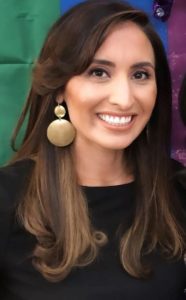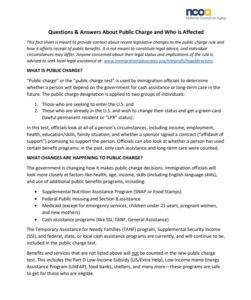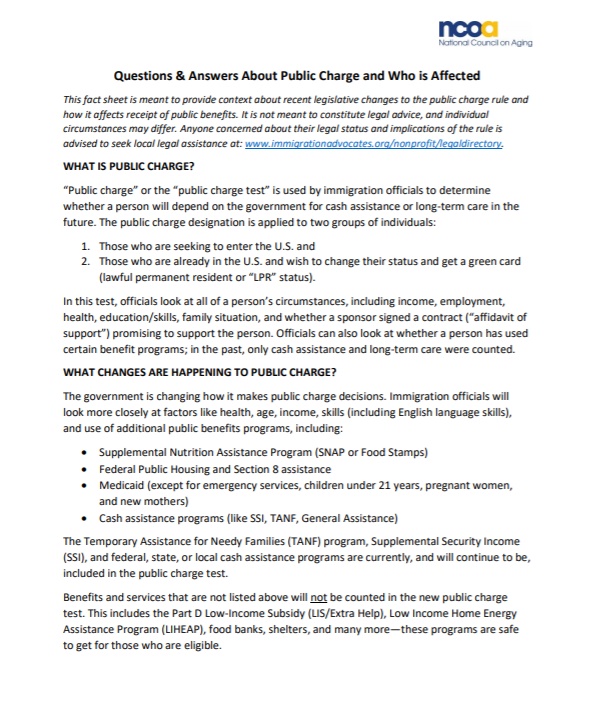by Vivian Nava-Schellinger, Associate Director, Strategic Partnerships & External Affairs, National Council on Aging
 Right now, there are more than 1.1 million immigrants aged 62 and older who are living at or below 250% of the Federal Poverty Level. While there are thousands of public benefits programs designed to help them pay for daily needs — such as food, medicine, and health care — recent changes to the “public charge” rule have added a layer of complexity for these individuals in need.
Right now, there are more than 1.1 million immigrants aged 62 and older who are living at or below 250% of the Federal Poverty Level. While there are thousands of public benefits programs designed to help them pay for daily needs — such as food, medicine, and health care — recent changes to the “public charge” rule have added a layer of complexity for these individuals in need.
“Public charge” or the “public charge test” is used by immigration officials to determine whether a person will depend on the government for cash assistance or long-term care in the future. Under the new rule, the government is changing how it makes public charge decisions. Immigration officials will look more closely at factors like health, age, income, skills (including English language skills), and the use of additional public benefits programs.
The National Council on Aging (NCOA) recently published a fact sheet in both English and Spanish (other languages coming soon) to provide context about the change and how it affects receipt of public benefits. We believe that to ensure that millions of older adults feel supported, we must clarify complex information, spread awareness about what and who the regulation will impact, and listen to the needs of communities.
The public charge fact sheet is available in three languages:
 From Tucson to El Paso and Atlanta to DC, we recognize the threats older adults are facing in this country, including the instability of retirement, cuts to Social Security, the high costs of prescriptions, and the slow struggle for paid family leave. Public charge is another issue worth clarifying and representing in a culturally responsive way.
From Tucson to El Paso and Atlanta to DC, we recognize the threats older adults are facing in this country, including the instability of retirement, cuts to Social Security, the high costs of prescriptions, and the slow struggle for paid family leave. Public charge is another issue worth clarifying and representing in a culturally responsive way.
As members of the Protect Immigrant Families Coalition (PIF), we compiled the information from the countless educational materials they provided, and we included information pertinent to older adults.
At NCOA, we are working to provide resources, advocate, and educate on behalf of those millions of older adults who are struggling, and we are treating complexities in our democracy as opportunities for collaboration.
The opinions expressed in this article are those of the author and do not necessarily reflect those of the Diverse Elders Coalition.

